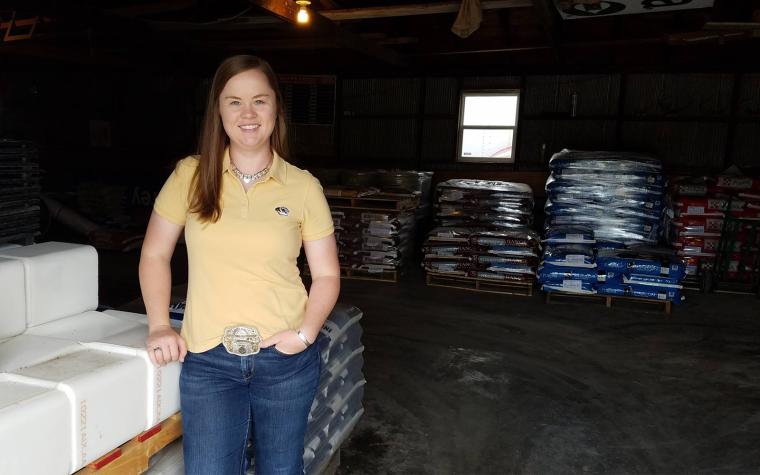MONTICELLO, Mo. – The federal Food Safety Modernization Act (FSMA), in place for nearly 10 years, requires elevator firms to develop and maintain documentation on their current good manufacturing practices for processing and selling animal feed.
Brenda Schreck, University of Missouri Extension livestock specialist, helps Missouri firms meet FSMA requirements through proper documentation.
“My objective with FSMA is to provide an affordable service to small firms, which helps sustain healthy communities while adding tax dollars to local and state economies,” said Schreck.
In 2021, the Missouri Agricultural and Small Business Development Authority released a study of the contribution of Missouri’s agriculture and forestry industries to the state’s economy. The animal and pet food processing sector added $3.8 billion to Missouri’s economy and 37,078 jobs in the state.
Schreck became certified in 2017 as a Preventive Controls Qualified Individual and created a manual template that includes a feed safety plan that can be modified for each firm’s unique manufacturing practices.
“These manuals also contain firm-specific documentation and forms that firms use to record trainings and compliance with FSMA guidelines,” Schreck said. “I provide routine consultations to help firms document changes in firm operations or interpretations of FSMA regulations by state and federal agricultural feed inspectors.”
Elevators that process and bag their own livestock feed sometimes include medications that require a veterinary feed directive. Other firms may handle bulk feed only. Some of Schreck’s clients are pet food manufacturers, which are also mandated to comply with FSMA.
“Every plan is unique,” she said. Schreck looks at a firm’s operating procedures to begin her assessment. She looks at physical hazards such as potential metal in feed ingredients as well as biological hazards such as mycotoxins in grain.
Schreck helps firms write and maintain compliance with their plan manuals and conducts annual consultations.
Program outcomes:
• Firms learn the guidelines for remaining in compliance with FDA animal feed safety regulations.
• Firms learn preventive measures they need to implement for animal feed safety and how to maintain accurate documentation for future inspections.
• Firms remain FSMA-compliant and stay in business, adding value to local and state economies.
Schreck says the FSMA aims to ensure the U.S. food supply is safe by shifting the focus from responding to preventing contamination in livestock feed and pet food.
For more information, visit the MU Extension Animal Feed Safety page at Animal feed safety.
Writer: Julie Harker
